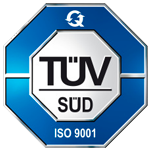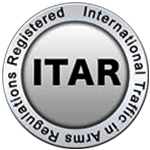Unlocking the Secrets: How Welding Sheet Metal Transforms Modern Manufacturing Techniques
The advancements in modern manufacturing techniques are significantly influenced by the process of Welding Sheet Metal, which has become an essential component across various industries. According to a report by the American Welding Society, the welding industry is projected to grow to $45 billion by 2026, highlighting the critical role that welding plays in economic development. As manufacturers strive for increased efficiency and precision, the application of advanced welding techniques in sheet metal fabrication has transformed the production landscape. This transformation not only enhances structural integrity and design versatility but also contributes to sustainable practices by reducing material waste. With innovations in welding technologies, such as laser beam and friction stir welding, the ability to produce intricate designs with superior quality is more attainable than ever. Understanding the methods and advantages of Welding Sheet Metal is vital for any organization looking to thrive in this competitive market.
Understanding the Basics of Sheet Metal Welding Techniques
Welding sheet metal is an essential skill in modern manufacturing, offering various techniques that can greatly enhance production efficiency and quality. Whether you're a hobbyist looking to build your own airplane or a professional in the auto body repair industry, understanding the basics of sheet metal welding can transform your projects. Techniques such as MIG welding provide a streamlined process for joining sheets together, making it accessible even for beginners.
Tips for beginners: Start with a clean workspace and ensure your metal surfaces are free of rust and debris. This preparation will help achieve a better weld. Additionally, invest in a good quality welder that suits your needs; it will significantly affect the ease and quality of your welds.
As you delve into sheet metal techniques, keep in mind the importance of controlling heat during welding. Overheating can lead to distortion, so practicing temperature management can be beneficial. Try to practice with scrap pieces of metal to hone your skills before tackling larger projects. Understanding the nuances of welding, such as relieving residual stress through careful technique, will enhance your expertise and confidence in sheet metal work.
Exploring Advanced Welding Technologies in Modern Manufacturing
Advanced welding technologies play a pivotal role in modern manufacturing, enabling greater precision and efficiency in the production of sheet metal components. Techniques such as laser welding, TIG (Tungsten Inert Gas) welding, and MIG (Metal Inert Gas) welding have revolutionized the way manufacturers approach fabrication. These methods provide not only stronger welds but also minimize thermal distortions and improve overall aesthetics. The integration of automation and robotic welding systems further enhances productivity, allowing for faster production rates and reduced labor costs.
In addition to the physical benefits, advanced welding technologies also contribute to sustainability in manufacturing. By improving energy efficiency and reducing waste, manufacturers can lower their environmental impact. The ability to join dissimilar materials through innovative welding techniques opens new avenues for product design and functionality, which is crucial in fields ranging from automotive to aerospace. As industries continue to evolve, the importance of mastering these advanced welding technologies will only grow, driving innovation and competitiveness in the global market.
Key Benefits of Welding Sheet Metal for Production Efficiency
Welding sheet metal has emerged as a cornerstone of modern manufacturing, offering several key benefits that significantly enhance production efficiency. One of the primary advantages is the ability to create durable and lightweight structures. This is particularly important in industries such as automotive and aerospace, where every ounce matters. The high strength-to-weight ratio achieved through welding can lead to better fuel efficiency and improved overall performance of the final products.
Additionally, the welding process allows for greater design flexibility. Manufacturers can easily customize parts and components to meet specific requirements, leading to a more efficient production cycle. With advanced welding techniques, complex shapes and designs can be achieved with precision, reducing the need for extensive machining and assembly operations. This streamlined process not only accelerates production timelines but also minimizes material waste, further optimizing efficiency in manufacturing environments.
Common Challenges in Sheet Metal Welding and Solutions
Welding sheet metal presents numerous challenges that manufacturers must navigate to enhance their production processes. One common issue is warping, particularly when working with lightweight materials that are increasingly favored in modern manufacturing. As industries shift towards lighter components for efficiency and performance, controlling heat during the welding process becomes critical. If the materials do not handle heat well, they can warp, leading to significant quality issues in the final product.
To mitigate these challenges, manufacturers are adopting innovative solutions such as advanced thermal techniques that allow for better temperature control during welding. Additionally, the integration of collaborative robotics in welding operations can improve precision and reduce human error, enhancing the overall quality of welds. With the sheet metal fabrication services market projected to grow significantly, addressing these challenges through technology and process improvements will be essential for manufacturers aiming to remain competitive in a rapidly evolving landscape.
Innovative Applications of Welded Sheet Metal in Industry
The innovative applications of welded sheet metal are transforming various industries, showcasing the dynamic interplay between traditional techniques and modern technology. Resistance welding, a key process in this evolution, allows manufacturers to join metal pieces with precision and speed. This method involves using electrodes to press metals together while delivering a controlled electrical current, resulting in strong, durable welds. As manufacturers adopt these methods, they enhance production efficiency, reduce costs, and maintain high-quality standards.
Moreover, the sheet metal fabrication services sector is experiencing significant growth, projected to reach USD 33.31 billion by 2034. This surge is fueled by the demand for customized components across industries, including automotive and construction. Additionally, advancements in technologies such as AI and automation in manufacturing processes—like those showcased at recent exhibitions—are streamlining workflow and improving product quality. These innovations are also evident in the rise of specialized machinery that facilitates advanced welding and cutting techniques, thereby expanding the applications of welded sheet metal even further in the modern manufacturing landscape.
Unlocking the Secrets: How Welding Sheet Metal Transforms Modern Manufacturing Techniques - Innovative Applications of Welded Sheet Metal in Industry
| Application Area | Material Used | Welding Technique | Benefits | Industry Impact |
|---|---|---|---|---|
| Automotive Manufacturing | High Strength Steel | MIG Welding | Increased structural integrity and reduced weight | Faster production and better fuel efficiency |
| Aerospace Components | Aluminum Alloy | TIG Welding | Precision and weight reduction | Enhanced safety and performance |
| Construction Equipment | Carbon Steel | Stick Welding | Durability against harsh environments | Longer equipment lifespan |
| Electronics Enclosures | Stainless Steel | Laser Welding | Aesthetic appeal and corrosion resistance | Improved market competitiveness |
| HVAC Systems | Galvanized Steel | Flux-Cored Arc Welding | Versatility in assembly and energy efficiency | Lower operational costs |
NORTH EASTON MACHINE • 218 Elm Street • North Easton, MA 02356 • 508-238-6219

